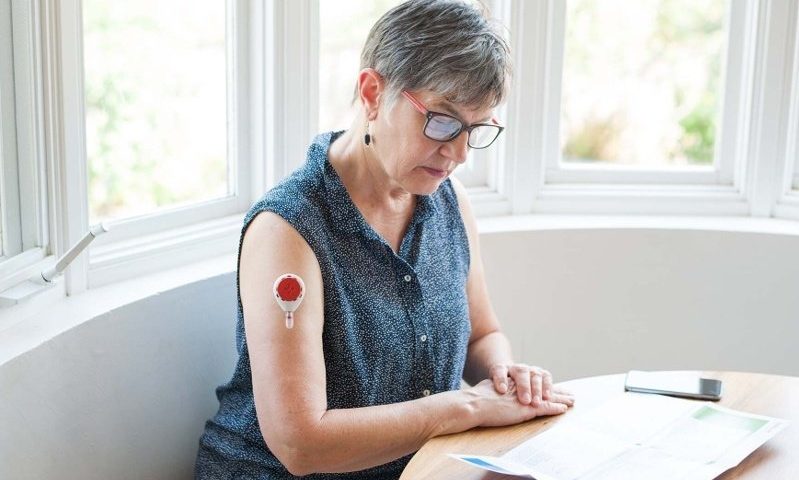Forget finnicky blood draws and painful finger pricks—now, blood samples can be collected with the push of a button.
Tasso’s button-activated device for at-home collection of dried blood samples has received CE mark certification, clearing it for use in Europe.
The Tasso-M20 device was developed specifically for use in decentralized clinical trials. It combines the Tasso Button—standard across all of the company’s OnDemand blood collection devices—with the M20-specific sample pod, which stores four precisely measured dried blood samples for transport to diagnostic labs.
Once the sample pod is connected to the bottom of the button, the device is attached to a user’s upper arm with a light adhesive. Pushing the button creates a vacuum on the surface of the skin and sends a lancet to draw a small amount of blood out of the capillaries and into the pod. Study participants then send the samples to a designated lab in a prepaid shipping envelope included in the sampling kit.
According to the company, in clinical studies of its devices, participants have reported that the Tasso Button causes lower levels of pain than standard blood draws and finger pricks.
With its freshly affixed CE mark, the Tasso-M20 can now be used in virtual clinical trials conducted by pharmaceutical companies, medical institutions and government health organizations throughout Europe.
“We are now witnessing a complete paradigm shift toward convenient patient care, with telemedicine appointments, virtual clinical trials and remote patient monitoring applications all rising in prevalence. These decentralized health applications will persist beyond the COVID-19 pandemic because they empower more actionable clinical data and better outcomes for patients,” Ben Casavant, Tasso’s CEO and co-founder, said in a release.
“The Tasso-M20 device is the first product of its kind to offer a convenient, clinical-grade and virtually painless blood collection experience. We are excited to now make it broadly available across the European Union and enable more customers to benefit from faster, simpler, decentralized clinical trials,” he added.
The Seattle-based startup has developed another device, the Tasso-SST, which captures whole liquid samples. That pod, which has yet to receive regulatory clearance, is designed for diagnostic use and relies on the same button-press technology as the Tasso-M20 to collect its liquid blood samples.
The Tasso-Sport, meanwhile, uses the same four-section sample pod as the M20 device but is meant to be used to facilitate drug testing in athletic organizations. It too is still authorized only for investigational use.
Further development of Tasso’s blood testing devices is backed by the nearly $40 million it has raised since its 2011 founding. Most recently, the company closed a $17 million series A led by Hambrecht Ducera Growth Ventures last July.

